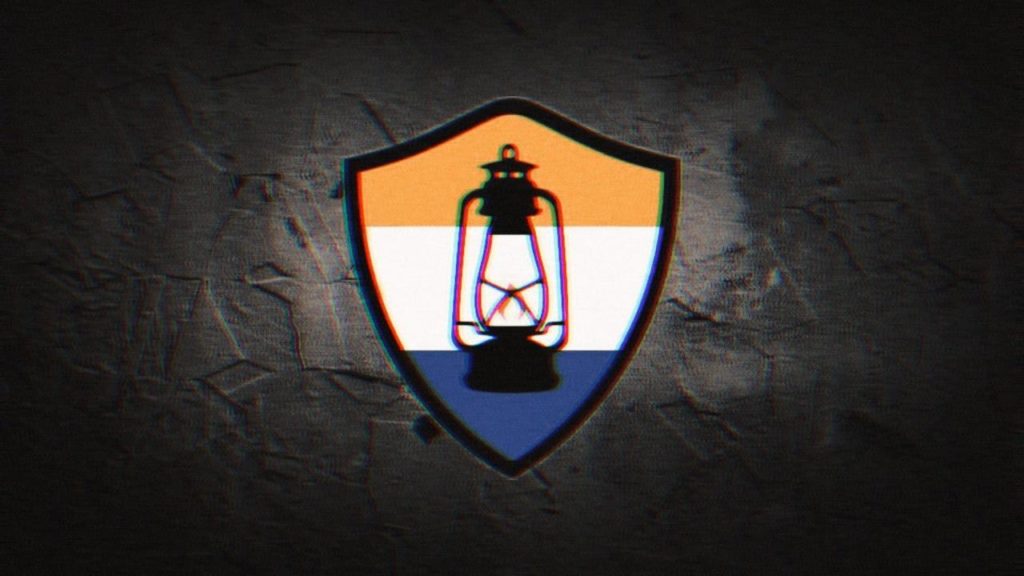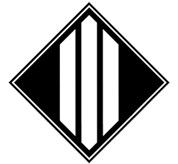„In the spirit of Diogenes, however, we will certainly hold a lantern to every Dutchman’s face” interview with Jeroen, member of Dutch organization Geuzenbond

Who are you and where did the idea for your organization come from?
My name is Jeroen and I am one of the founding members of the Geuzenbond. The Geuzenbond is a youth organisation that aims to bring young Dutch nationalists together. The organisation was founded in 2018 by myself and 3 other patriotic and motivated youngmen as we were unable to find an existing Dutch nationalist organisation that was targeted at teenagers and young adults. After the initial founding of the Geuzenbond in March 2018 and the start of active member recruitment since early 2019 we have been steadily growing and working hard to create a brotherhood of like-minded individuals.
Why exactly a lamp? Are you looking for a Dutchman like Diogenes from Synopa? Is this your original symbol?
Our symbol is entirely our own and to our knowledge the lantern has never been used as a political symbol in the Netherlands before the existence of the Geuzenbond.
Although we do appreciate the reference to Diogenes’, our symbol, the lantern, actually stands for the light that we follow in the darkness that the Netherlands finds itself in today.
In the spirit of Diogenes, however, we will certainly hold a lantern to every Dutchman’s face and we will never give up our search for the honest and upright men that the Netherlands so desperately needs.
In the name you have Geuzen. Who were they and what do they mean to the Netherlands historically and today?
The historical Geuzen have their origin in the Dutch rebellion against Spanish rule in the Low Countries. Their name is derived from the French word Gieux, which means ‘Beggar’. Historically the name Geuzen has been adopted by many groups that seek to fight against an opressive force, and our case is no different. We now live in a country where our own government has turned on us, is selling us out to supranational organisations like the EU, and yet progressives call us opressors and brand us as heretics for not conforming to their worldview, so uur name has a kind of double meaning. On one hand we want to restore a sense of belonging and community to our country’s youth, and on the other we resist this status quo that brands us as heretics for our belief in ourselves, and seeks to destroy our self-worth as a people.
Can you compare the fight of Geuzen with Spain to your fight with Americanization? What methods do you use and are you going to use?
The Geuzen did indeed struggle against foreign occupation and imperialism, which is enough grounds to draw a comparison. The difference lies however in the insidious nature of American cultural imperialism and how it conquered the hearts and minds of the people of the Netherlands following World War II. Recently there was an article about how there are more English signs in Amsterdam now than there were German signs in ‘40-’45, yet without a serious effort to raise public awareness about how American influence is poisoning our identity most people will simply not be motivated to pay attention. To this end we employ a number of strategies ranging from small-time actvism such as our „SPREEK NEDERLANDS” (speak Dutch) stickers to larger actions like when we visited the universities of Twente and Tilburg with a „SPREEK NEDERLANDS” banner. Many universities in the Netherlands are phasing out Dutch to accomodate foreign students, which we are strongly against, so we protested their policy on their premises.
Staying on overseas subjects. On your site there is mention of help for the Boers. How do you relate to the brothers from South Africa and Namibia, and how does the average Dutchman see it?
We see the Afrikaners as a kindred people originating from shared ancestry. Because Dutch politcs spearheaded the supposed struggle against Apartheid the average Dutchman has, much to our regret, lost their ancient connection with their South African brothers and sisters.
As an organisation we observe Afrikaner holidays and do our best to support their community from overseas but seeing as their domestic network is already quite extensive it would have to take one of our members moving there before we can truly get an interpersonal connection off the ground locally.
You seek to return Flanders to the matrix. Is this possible in the near future?
While we do definitely think it is possible to return Flanders (Southern Netherlands) to the Northern Netherlands in the near future, we do not think it would be a positive thing at the moment. Let me explain: Flanders currently has a huge potential for real nationalism, while the Netherlands are stuck with liberal “nationalist” parties that do nothing but criticize Islam for not being liberal enough. If the Netherlands and Flanders would unite tomorrow, this potential would be lost and they would become as liberal as the North. The best option is for Flanders to become nationalist and independent from Belgium, and for the North to move towards nationalism under Flemish influence. Only once both North and South are nationalist, they should unite into one state.
In Belgium, apart from Flanders, there is Wallonia. How do you view Walloon issues and other reunification movements in Europe?
As nationalists, we support all European people’s right to self-determination. Nationalism in Wallonia in general isn’t very prominent, most Walloons either want to keep Belgium afloat or join France. Though French-Speaking Walloons have been historically linked with the Netherlands, there isn’t much support for reunification with the Netherlands. Should such a movement arise however they can count on our support.
What is the political scene in the Netherlands? Do you have any scope for cooperation with anyone?
As for the political scene in the Netherlands, all the parties are of course nowhere near true nationalism. There is not much more than criticism of Islam as a way to revive a dying liberalism. As for the nationalist scene in the Netherlands, it is not very large. This is why the Geuzenbond was founded. We, of course, are open to cooperation with any group that fits our views in the Low Countries.
You want to protect Dutch. What are the threats to your native speech? What are the Low Saxon and West Frisian languages?
The largest threat to our language currently is replacement of it with English. We are seeing it both in the institutions and in normal society. Lately, universities and other education facilities have been switching out Dutch for the English language. As for the rest of society, it is noticeable that everyone is starting to use English words while speaking Dutch. On the subject of Low Saxon and Frisian: they are regional languages and are a part of the local identity in the regions where they are spoken. Because of this, they should be protected as well
The tradition of the portal is that the last words belong to the caller. What message would you like to leave to Poles?
Be warned: do not give up the fight. The last elections in Poland show that our opponents are always looking to disarm our countries. I would like to wish all Polish nationalists the best of luck in the fight for a free and above all a Polish Poland. Hopefully, nationalists across Europe can make a stand together for a strong Europe, for a continent where all peoples can peacefully and safely live in their homelands.
The interview was conducted by Bogusław Nachut
Graphic design: Resistance Arts


